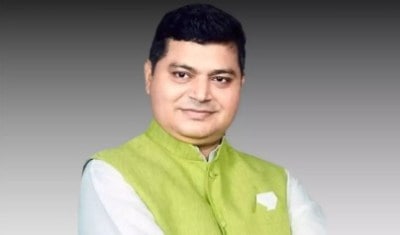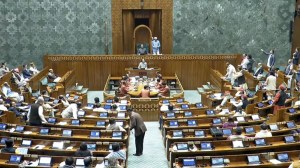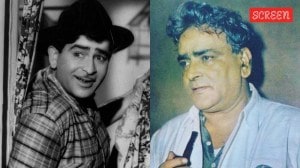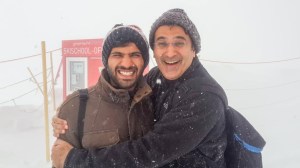Zia and South Block
Jalandhar gave this world Zia ul-Haq. The late general, chief martial law administrator and president of Pakistan has left behind a legac...

Jalandhar gave this world Zia ul-Haq. The late general, chief martial law administrator and president of Pakistan has left behind a legacy that is as interesting as it is disturbing. The Pakistani elite, of course, regard him as the ultimate sycophant, first to Zulfiqar Ali Bhutto, and after overthrowing him, to the Arabs. He is reviled, and rightly so, for the terrible damage that was done to Pakistan. The Afghan war, of course, played its own significant part, but Zia ul-Haq’s agenda added to the problem.
Sectarian politics assumed a different, uncharted, level of monstrosity. Zia aided the growth of the Mohajir Quami Movement only in order to check the spread of the Jamaat-e-Islami in Karachi. The Sunni private armies of central Punjab were born during his time. And both problems continue to haunt Pakistan, because in their wake have appeared Shia militias, drug armies, and all sorts of thuggish and criminal groups. There is a valid reason to recount the social damage caused by Zia ul-Haq, for there areimportant lessons in that episode for India, which, in order to understand better, a return to the Arabs is required, and to Saudi Arabia specifically.
Many would remember that Pakistan Army had a division in Saudi Arabia, under the command of the insulated royal family. This was in response to the 1979 takeover of the holy Ka’aba by rebellious ultra-conservatives. The use of force to free the Ka’aba was bad enough, doubly so was the use of white troops. So in order to calm the citizenry, Pakistani troops were brought in, if ever there were to be contingency operations. The division was a significant source of foreign exchange remittances, paid as they were at rates far higher than a Pakistani soldier could possibly ever hope to imagine. But with the Saudis being even more sectarian than Zia, the story became murkier. As rumblings in the local Shia population grew, the Saudi authorities’ attention was drawn to the significant numbers serving in the Pakistani Army division. Zia, the perennial Saudisycophant, was asked to move his Shia troops back to Pakistan.
The response from Zia ul-Haq was, however, interesting, and significant to us even today. For, despite his sectarian leanings, Zia, instead, moved the entire division back to Pakistan. He gave sycophancy the go by, sacrificed those dollars only in order to prevent the appearance of sectarianism in the armed forces. One argument may well be that the source of his power emanated from the Army and he couldn’t possibly harm the composition of the service. But at the root was his understanding of the outcome of opening the Army to sectarian adjustments. And as head of the republic, he could not in any way permit the encroachment of sectarianism in the armed forces, which in Pakistan as in every country of the world, are the last resort of the republic. After the armed forces a country has no other option left to fall back upon for internal defence as well as war. The Zia response to the Saudi request is of direct relevance to us in India, where theMinistry of Defence (MoD) seems to have a different interpretation of sectarianism vis-Ã -vis the armed forces. Conditioned as they are by the degeneration of Indian society into sectarian compartments, the MoD does not think it worthwhile to pay attention to these disturbing signs in the armed forces. Nothing else explains the conduct of the ministry in handling the blatantly anti-secular and violently sectarian agenda unleashed by the Fortress Commander at Andamans, the Vice Admiral at the centre of a storm currently buffeting the eastern end of South Block. Despite making the wildest and the most dangerous communal allegations against the Naval hierarchy, and being slapped with a show-cause notice in return by Naval Hqs, the Ministry of Defence has not deemed it fit to act in the interests of a secular service, one amongst only three left in the country. The MoD has decided that an apology, which, even MoD bureaucrats do not hesitate to point out, has not been given, is solution enough to this graveproblem.
Now this is something akin to taking a walk on ice that is not merely thin, but is actually cracking. The issue that comes to mind is whether the MoD is competent to deal with matters that involve the ethos, cohesiveness and combat effectiveness of the services. Are the officials, themselves the products of a sectarian and communalised environment, competent enough to deal with an officer, in this case, who has made the most ugly observations about faith and a ‘hidden denominational agenda’? It is worrisome to observe that the Government of India believes they are competent. And that too in handing out notes suggesting an apology, even when not given, is sufficient.
Which then brings us to the point of the armed forces and apologies. The Republic of India has bestowed the ultimate honour to a soldier in giving him the responsibility of a weapon and the authority to kill. He will use that weapon when ordered to do so in defence of the Republic. But in bestowing that honour, the Republic has alsotaken away certain fundamental rights that are enshrined in our democratic Constitution. Freedom of speech, right to assembly are some of those democratic guarantees sacrificed by soldiers. Which would then lead us to the prevailing belief that soldiers are not school boys, forgiven at the drop of an apology, even if a fictitious one. And that is the fundamental difference between life in the uniform of a service, and life in a service without a uniform.
The profession of soldiering cannot be governed by house rules designed around a civilian structure scarcely concerned with dedication, devotion and discipline. Soldiering is a profession that demands life and death, and thus at the end of the day there is no place, and no option, for recourse to an apology. If there was to be one, it would usher in the end of soldiering as the world sees it. And so back to the competence of the MoD in accepting an apology from a serving soldier, even if it is a phantom. What all this point towards is that there issomething seriously amiss in the very structure that manages the affairs of the services, and the responsibility for sustaining this deeply flawed system rests on every government that has ruled this wonderful country. So back to the man who did his damnedest to bring about its disintegration, Zia ul-Haq, and a strange quirk of fate and coincidence that the chief architects, lobbyists and interested parties in the current Navy-MoD imbroglio have a deep and abiding connection with Jalandhar.
- 01
- 02
- 03
- 04
- 05































